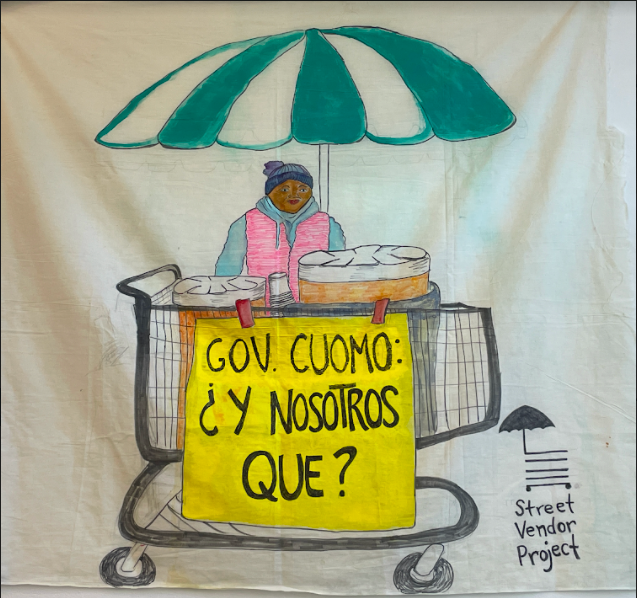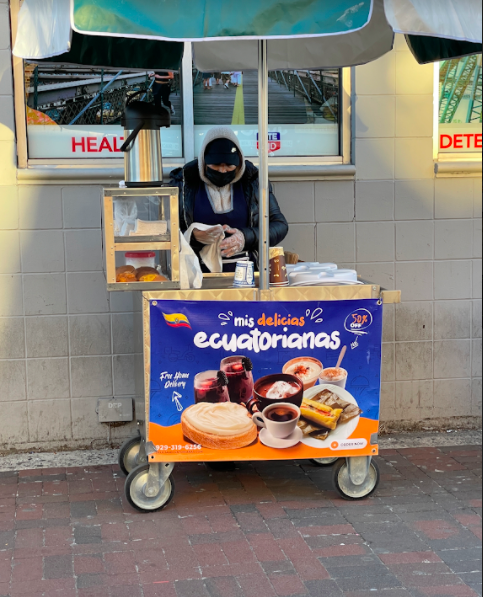Enhancing Access to Healthy Food

Ryan Devlin
Ane Gonzalez Lara
Shanaz Khan, MS Historic Preservation ’22
Eesha Jain, BArch ’23
Street Vendor Project
School of Architecture, Historic Preservation and Undergraduate Architecture
Taconic Fellowship
Enhancing Access to Healthy Food began in the fall of 2021 with background research focused on cart design, and archival work helping to build a record of historic cart design in New York City. Our research informed new ideas and served to highlight New York City’s long history of street vending, while also demonstrating the ways in which vending by immigrants is an integral element of the city’s heritage. We also researched the legalities of vending to understand the complexities of the regulatory environment of vending in general and cart design in particular.

The spring semester has been spent performing outreach with vendors, both on the sidewalks and through Zoom meetings organized with the Street Vendor Project, our community partner. Participatory design workshops have been delayed by the Omicron variant until later in the spring, when these meetings can be held outdoors and/or when COVID restrictions loosen. Once the participatory design workshops begin, vendors will be invited to share ideas for cart design and co-produce prototypes that are affordable, lightweight, and compliant with regulations.
The project has evolved in a few important ways. First, after consulting with the Street Vendor Project, we have decided to specifically target our designs for compliance with the city’s Green Carts Program—a public health initiative that uses street vendors to increase access to fruits and vegetables in poorly served communities. The Green Carts program recently expanded to include the sale of cut fruit, dried fruit, and nuts, which opens a range of opportunities for informal vendors who already sell these products but who need upgrades to conform to regulations.
Secondly, through our study of regulations and discussions with vendors, we are learning that producing a cart design that is fully compliant and affordable for vendors is very difficult. While creating a prototype is still a goal, we envision the prototype to be the beginning of a conversation rather than serving as a fully compliant design. We hope to make the argument for flexibility in balancing food safety with access and livelihood opportunity, while aiming to identify rules that are particularly onerous for vendors and do not add much in the way of safety. These rules often exclude lower-income vendors from selling their goods legally, and we want to build a cart design that responds to the criteria of basic food safety but does so in more affordable ways.